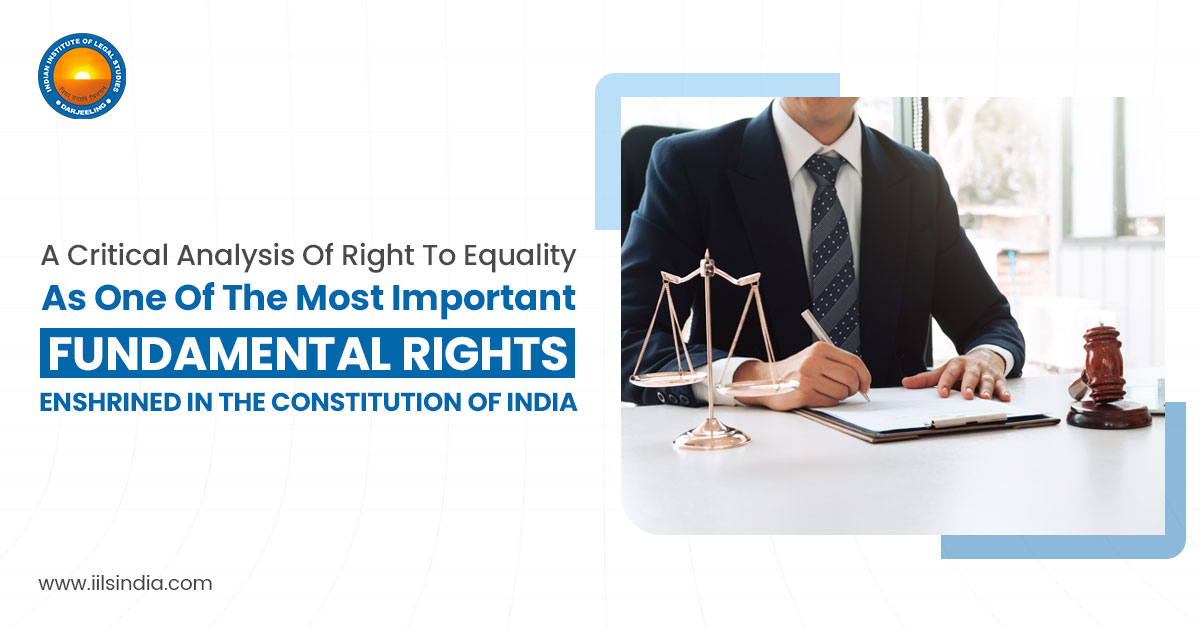The framers of the Constitution of India had tried their level best to incorporate all the basic human rights in this Constitution so that the Citizens and also non citizens won’t be facing any kind of discrimination in this country. After so many considerations, they have put valuable rights without which we cannot live as a human being. These rights are called as fundamental rights. Without fundamental rights, human beings live as mere animal existence. Besides having fundamental rights, it is also necessary to have the enforcement mechanism to enforce and protect the violation of such rights. Therefore in our constitution, provisions for enforcement of fundamental rights are also present. Bar Council of India has incorporated the Constitution of India as a subject in the syllabus of law colleges. Law college in Cooch Behar also gives importance to this subject.
Article 14 as One of The Important Fundamental Rights Enumerated in The Indian Constitution
Part III of Indian Constitution provides for various kinds of fundamental rights. Right to equality,
various types of freedom, right to religion, cultural and education rights are some of the examples of fundamental rights. The first and foremost important right is right to equality starting from Article 14. It consists of five Articles. Article 14 of the Indian Constitution talks about equality before the law and equal protection of the laws. Hence it can be said that Dicey’s concept of rule of law has been incorporated in our Constitution of India. Article 15 talks about prohibition of discrimination on certain grounds only. These grounds have specifically mentioned in this Article as to avoid any confusion. The grounds are as follows: religion, race, caste, sex and place of birth. Article 16 of Indian Constitution talks about equality of opportunity in cases of employment and appointment to any government office on the grounds of certain specified grounds such as religion, race, caste, sex, descent, place of birth and resident. Articles 17 and 18 abolishes untouchability and titles respectively.
Certain Exceptions to Article 14
We all know that no right is absolute. Here the situation is same for right to equality under Article 14. For example, our President of India and Governor of all the states have certain immunities which they enjoy. Such as no criminal proceedings, no process of arrest or imprisonment and no civil proceedings will be instituted or issued.
Conclusion
The question arises why this right is so important. The answer is that without this right, other rights cannot work properly and without discrimination. This right ensures fair justice system. Law college in west bengal organizes seminars regarding the importance of fundamental rights so that academicians, law professionals, advocates, law students and scholars can take part in fruitful sessions.

